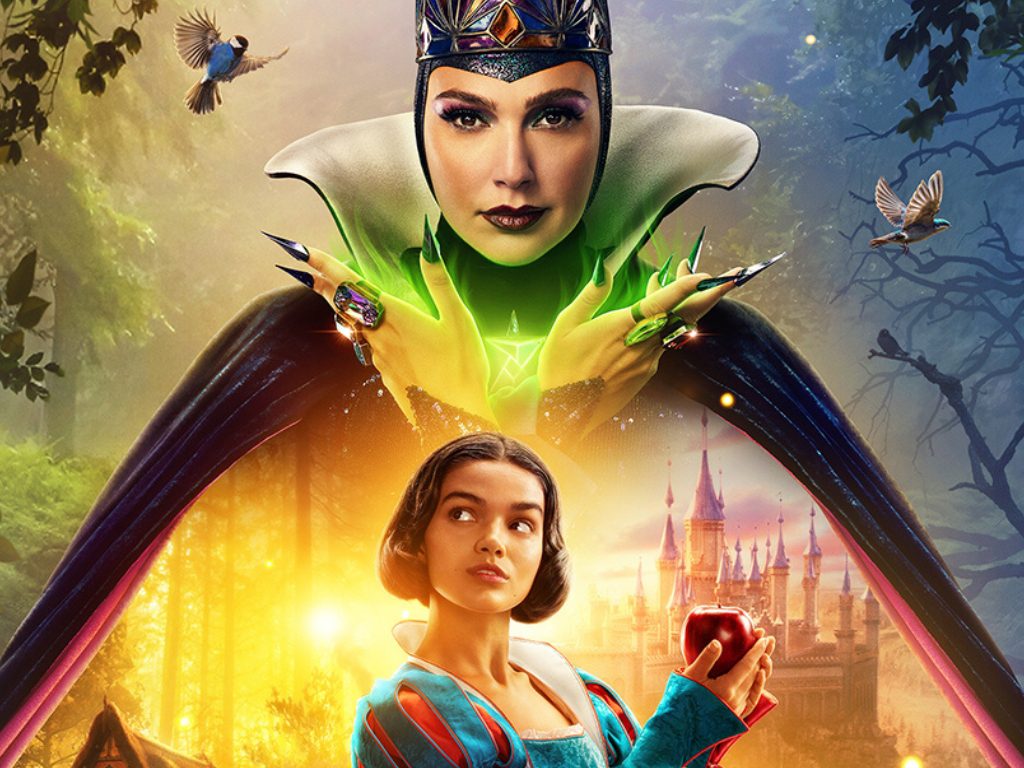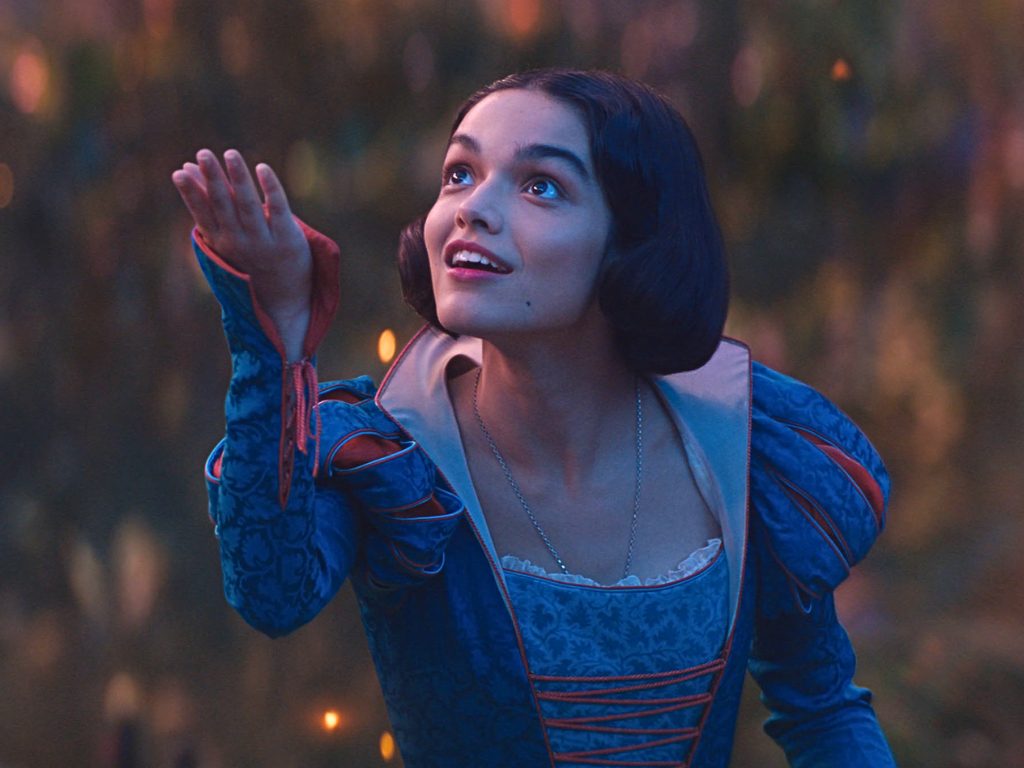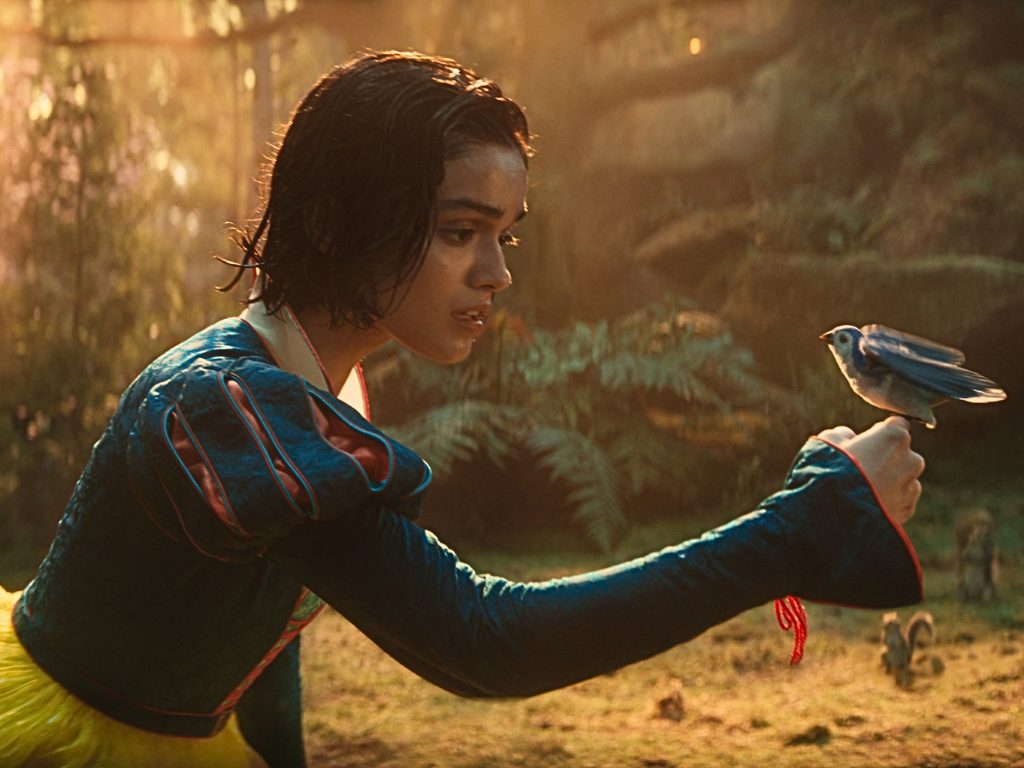
Image: Courtesy of Disney
Snow White, starring Rachel Zegler in the title role and Gal Gadot as the Evil Queen, has generated controversies that have been covered extensively elsewhere over Zegler’s statements trashing the original film and saying the prince “literally stalks” Snow White; about the portrayal of the dwarfs, who were rendered in CGI and who may or may not be stereotypical and offensive; and various other matters.
But now that the movie has opened, all that matters is whether audiences walk out humming the tunes or wishing they could get their money back.
And the new film left me cold.
I certainly couldn’t imagine a generation of little girls loving this film the way my friends and I loved the original.
Singing a Different Tune: Comparing Snow White’s New Songs
If you’ve heard “Someday, My Prince Will Come,” the show-stopping tune from the original even once or twice, you likely can hum it, and you may even remember the lyrics, which include, “Someday, my prince will come/Someday we’ll meet again/And away to his castle we’ll go/To be happy forever, I know.”
There’s no ballad in the new film to replace it. Instead, we now have “Waiting on a Wish,” with lyrics that include: “I close my eyes and see/The girl I’m meant to be/Is she a part of me I’ve had to hide?”
While a young woman awakening her potential is a noble idea for a movie, maybe it could coexist alongside a storybook romance. Does longing for a wonderful partner mean we can’t become the woman we’re meant to be?

Image: Courtesy of Disney
Laudatory Sentiments, Lackluster Results: A Snow White 2025 Review
This isn’t to say that the movie doesn’t feature enjoyable elements. Zegler, who rose to fame playing Maria in the Steven Spielberg remake of West Side Story, has an incredibly lovely singing voice and an appealing presence. Gadot, who bears an uncanny resemblance to the Evil Queen of the original, has fun chewing the scenery as the incarnation of vanity and selfishness.
But the movie stumbles when it comes to the male lead, Jonathan (Andrew Burnap), who isn’t royalty but a Robin Hood-type who tries to steal from the castle to give food to the needy people of this kingdom. Not that there’s anything wrong with that, to quote Jerry Seinfeld, but this storyline is somehow pallid. The beleaguered residents of the kingdom wear Hunger Games-style burlap and look downcast, and we’re meant to cheer Snow White on as a representative of girl power. All of this is laudatory in theory, but when you see it on screen, it’s lackluster.
The whole conception has shifted away from the archetypal story of a glamorous older woman who will stop at nothing to get the one who is now “the fairest of them all” out of the way, and a young woman dreaming of her lover. Yes, the Evil Queen is a stereotype that some may find offensive, but aren’t all fairy tales grounded in a certain psychological reality? Can we really say that every woman we met throughout our personal and professional lives welcomed us with open arms and was goodness incarnate? Have we always been so wonderful to other women we’ve encountered?
I believe we’ve all had to deal with other people’s jealousy, and we’ve all been jealous ourselves. It’s possible to tell the story of a jealous woman and the young girl she envies without sanitizing it with lines about female empowerment that sound like they could come from a leadership seminar.
I don’t believe it’s so wrong to long for love, or to watch stories of idealized love. After all, we’ve been told for decades that all sexual fantasies are fine, so when did romantic fantasies become taboo? Can those of us who have gotten out of bad marriages really blame the fairy tales we read for our choices?
Dreaming Another Dream: What Heartburn Can Teach Snow White
By way of answers to these questions, let me share the story my thoughts strayed to as I left Snow White: Nora Ephron’s novel, Heartburn, which might be as far from a fairy tale as a book can be. Ephron, who died in 2012, was a journalist/director/screenwriter in addition to a novelist, and was known for her sardonic, witty voice. This book is a roman à clef inspired by the breakup of her second marriage, to Watergate reporter Carl Bernstein, which happened when he told her he was in love with someone else while she was pregnant with their second child. This is not a spoiler—the narrator reveals this on the opening page.
Heartburn is a bitter, angry, and wildly funny story of how romance can be ruined by betrayal. And yet, it’s still oddly hopeful. Ephron wrote, toward the end: “The dream dies. Which leaves you with a choice: you can settle for reality. Or you can go off, like a fool, and dream another dream.”
If Rachel, Ephron’s avatar in the novel, could still believe in love at the end of the story, even if it made her feel foolish to do so, why should we not do the same? And the fact is, Ephron herself didn’t give up on love. In 1987, after the divorce that inspired the novel, she married the writer Nicholas Pileggi, and they stayed together until her death. Reportedly theirs was a great love, which many think inspired her touching portrayal of the relationship between chef Julia Child and her husband in Julie & Julia, her last film. What would Ephron make of the new Snow White? I think she’d find it lacking and had she been tasked with updating the fairy tale, I imagine she would have left in the romance.

Image: Courtesy of Disney
Update a Classic, but Leave in the Love: Romance Still Matters
Certainly, we should encourage girls to see movies about women who are active and who control or try to control their own destinies. But is it really necessary to dispense with love altogether? Snow White ends with the heroine’s triumph as she defeats the Evil Queen and restores liberty and justice to her subjects. She and Jonathan dance together in white in the middle of a square where everyone is now well-fed and also dressed in white. While it’s implied that Snow White and Jonathan have gotten married, it’s the end of the Evil Queen’s oppressive rule that is really being celebrated.
We can cheer for the downfall of a tyrant and still enjoy a love story. There’s nothing wrong with updating a classic. Make the prince human. Let him fall down, act silly, get embarrassed, make mistakes. Cast an actor from a different race as the heroine. Make the prince into another princess and have the romance be about two women. Tinker with it any way you want, as long as there is still love. Don’t try to deny its centrality—and its magic—in human experience.


Agree agree agree